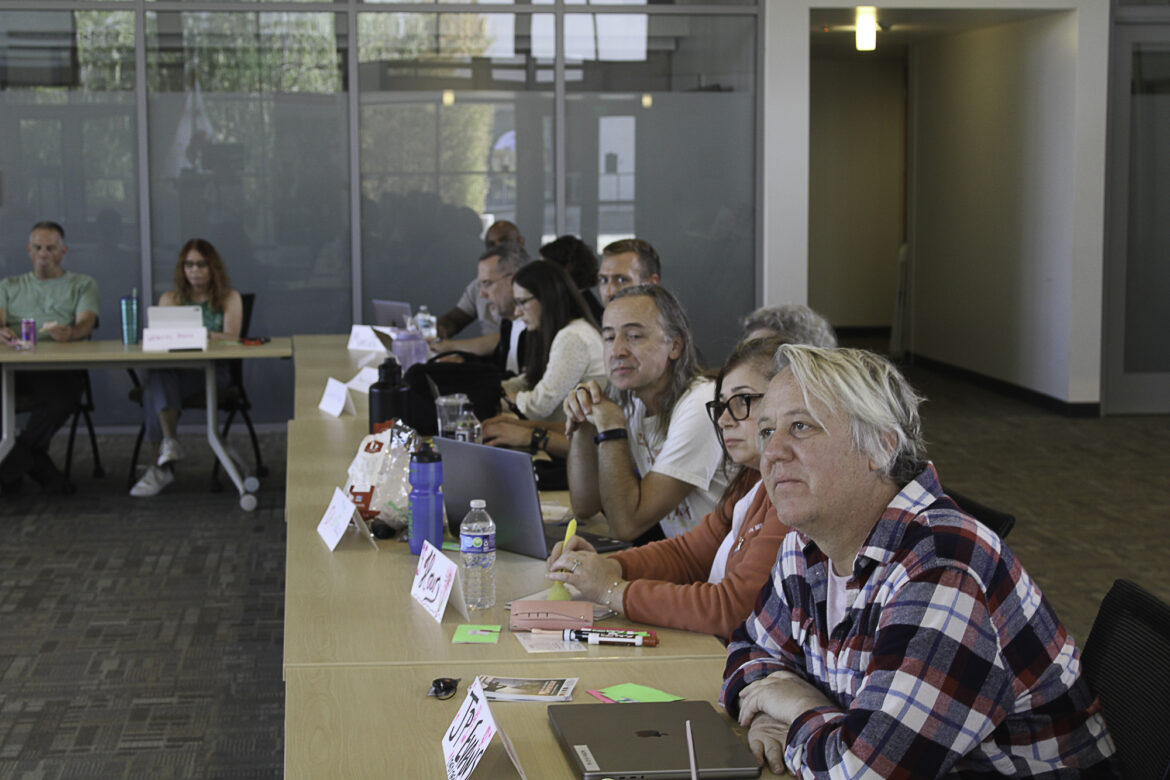Distance Education Coordinator Wendy Bass discussed the drawbacks of artificial intelligence use and how it impacts work on Canvas during the Academic Senate meeting on Oct. 7 in Building 600.
“All it would do would help them cheat and not really help them learn the material,” Bass said. And you know, our goal is to help students learn how to critically think and learn material so that they can apply it.”
Bass discussed how students use AI on Canvas.
“There are some very expensive tools out there that make it so that students in the middle of taking a quiz can have an AI tool that could cost anywhere from $4 to $8 a week, helping them respond to questions in a quiz in Canvas,” Bass said.
Philosophy and Sociology Department Chair Cara Gills discussed how AI is an ongoing topic in education and if it is possible to regulate AI.
“That’s something we’re going to be talking about at our next meeting,” Gills said. “Just think of the idea of what AI means, what it would mean to regulate, why one would want to regulate it, if it’s even possible to regulate it, we consider questions through the lens of the professional code of ethics. And so if there’s ways of integrating AI, that’s in alignment with the professional code of ethics and that’s something to discuss.”
Academic Senate Vice President Travis Orloff said how faculty members decide their own policy to implement and regulate AI, and it’s hard to determine how each professor will want to approach it.
“The academic policy committee is going to provide a range of syllabus language statements from the most restrictive to the least restrictive as far as AI policies could go in a class, and that it’s going to be important for students to know what their particular instructor’s policy is going to be because they’re all going to be significantly different,” Orloff said.
Bass encouraged students to produce their own work, and for professors to be aware of AI use.
“I think we should make it a priority to encourage more authentic assessments,” Bass said.
The next Academic Senate Meeting will be held on Monday, Oct. 21 in Building 600.




